- Home
- Henry James
The Daily Henry James Page 11
The Daily Henry James Read online
Page 11
December 12
The Lesson of the Master, 1892
The quiet face had a charm which increased in proportion as it became completely quiet. The change to the expression of gaiety excited on Overt’s part a private protest which resembled that of a person sitting in the twilight and enjoying it, when the lamp is brought in too soon.
December 13
A Landscape Painter, 1866
“To be young, strong and poor—such in this blessed nineteenth century, is the great basis of solid success.”
December 14
The Ambassadors, 1903
The tokens of a chastened ease, after all, still abounded, many marks of a taste whose discriminations might perhaps have been called eccentric. He guessed at intense little preferences and sharp little exclusions, a deep suspicion of the vulgar and a personal view of the right. The general result of this was something for which he had no name, on the spot, quite ready, but something he would have come nearest to naming in speaking of it as the air of supreme respectability, the consciousness, small, still, reserved, but none the less distinct and diffused, of private honor.
December 15
Washington Square, 1881
He had passed his life in estimating people (it was part of the medical trade), and in nineteen cases out of twenty he was right.
December 16
The Golden Bowl, 1904
So ordered and so splendid a rest, all the tokens, spreading about them, of confidence solidly supported, might have suggested for persons of poorer pitch the very insolence of facility. Still, they weren’t insolent—they weren’t—they were only blissful and grateful and personally modest, not ashamed of knowing, with competence, when great things were great, when good things were good, and when safe things were safe, and not, therefore, placed below their fortune by timidity; which would have been as bad as being below it by impudence.
December 17
The Awkward Age, 1899
“For how can, how need a woman be ‘proud’ who’s so preternaturally clever? Pride’s only for use when wit breaks down—it’s the train the cyclist takes when his tire’s deflated.”
December 18
The Ambassadors, 1903
He was struck with the tack, the taste of her vagueness, which simply took for granted in him a sense of beautiful things. He was conscious of how much it was affected, this sense, by something subdued and discreet in the way she had arranged herself for her special object and her morning walk—he believed her to have come on foot; the way her slightly thicker veil was drawn—a mere touch, but everything; the composed gravity of her dress, in which here and there, a dull wine-color seemed to gleam faintly through black; the charming discretion of her small, compact head; the quiet note, as she sat, of her folded, gray-gloved hands.
December 19
Roderick Hudson, 1875
“Upon my word I’m not happy! I’m clever enough to want more than I have got. I’m tired of myself, my own thoughts, my own affairs, my own eternal company. True happiness, we are told, consists in getting out of one’s self, but the point is not only to get out—you must stay out; and to stay out you must have some absorbing errand.”
December 20
The Ambassadors, 1903
“Is Mamie a great parti?”
“Oh, the greatest we have—our prettiest, brightest girl.”
“I know what they can be. And with money?”
“Not perhaps a great deal of that—but with so much of everything else that we don’t miss it. We don’t miss money much, you know,” Strether added, “in general, in America, in pretty girls.”
December 21
The Next Time, 1895
I would cross the scent with something showily impossible, splendidly unpopular.
December 22
The Ambassadors, 1903
Above all she suggested to him the reflection that the femme du monde—in these finest developments of the type—was, like Cleopatra in the play, indeed various and multifold. She had aspects, characters, days, nights—or had them at least, showed them by a mysterious law of her own, when in addition to everything she happened also to be a woman of genius. She was an obscure person, a muffled person one day; and a showy person, an uncovered person, the next.
December 23
The Golden Bowl, 1904
Such connection as he enjoyed with the ironic question in general resided substantially less in a personal use of it than in the habit of seeing it as easy to others. He was so framed by nature as to be able to keep his inconveniences separate from his resentments.
December 24
The Wings of the Dove, 1903
They were on the edge of Christmas, but Christmas, this year was, as, in London, in so many other years, disconcertingly mild; the still air was soft, the thick light was grey, the great town looked empty, and in the Park, where the grass was green, where the sheep browsed, where the birds multitudinously twittered, the straight walks lent themselves to slowness and the dim vistas to privacy.
December 25
The Altar of the Dead, 1895
No shrine could be more decked and no ceremonial more stately than those to which his worship was attached. He had no imagination about these things save that they were accessible to every one who should ever feel the need of them. The poorest could build such temples of the spirit—could make them blaze with candles and smoke with incense, make them flush with pictures and flowers. The cost, in common phrase, of keeping them up fell entirely on the liberal heart.
December 26
What Maisie Knew, 1898
She was at the age when all stories are true and all conceptions are stories. The actual was the absolute; the present alone was vivid.
December 27
The Wings of the Dove, 1903
It was an oddity of Mrs. Lowder’s that her face in speech was like a lighted window at night, but that silence immediately drew the curtain.
December 28
The Papers, 1903
They were above all in that phase of youth and in that I state of aspiration in which “luck” is the subject of most I frequent recurrence, as definite as the colour red, and in which it is the elegant name for money when people are is refined as they are poor.
December 29
The Ambassadors, 1903
A fine, worn, handsome face, a face that was like an open letter in a foreign tongue.
December 30
The Ambassadors, 1903
The little waxed salle a manger was sallow and sociable; Francois dancing over it, all smiles, was a man and a brother; the high-shouldered patronne, with her high-held, much-rubbed hands, seemed always assenting exuberantly to something unsaid; the Paris evening, in short, was, for Strether in the very taste of the soup, in the goodness, as he was innocently pleased to think it, of the wine, in the pleasant coarse texture of the napkin and the crunch of the thick-crusted bread.
December 31
Browning in Westminster Abbey, 1890
Just as his great sign to those who knew him was that he was a force of health, of temperament, of tone, so what he takes into the Abbey is an immense expression of life—of life rendered with large liberty and free experiment, with an unprejudiced intellectual eagerness to put himself in other people’s place, to participate in complications and consequences—a restlessness of psychological research that might well alarm any pale company for their formal orthodoxies.
[Robert Browning buried in Westminster Abbey on this day in 1890]
Index of Sources
“Altar of the Dead, The” (1895), January 14, February 11, March 2, March 13, April 28, May 6, August 6, October 19, December 25
Ambassadors, The (1903), January 31, February 10, February 17, February 26, March 27, March 30, April 9, May, May 29, June 17, June 26, July 27, July 30, August 5, August 19, August 26, September 2, September 6, September 12, October 1, October 22, October 27, November 12, December 14, December 18, December 20, December 22, December
29, December 30
American Scene, The (1907), March
“Anthony Trollope” from Partial Portraits (1883), April 27
“Art of Fiction, The” (1884), January 11, April 19, July 8, September 18
Aspern Papers, The (1888), January 12
“Author of Beltraffio, The” (1885), April 3, April 12, June 7, July, September 3
Awkward Age, The (1899), January 17, February 5, February 27, March 16, March 25, March 29, April 5, April 17, May 15, May 18, May 28, June, June 8, June 29, July 25, July 31, August 28, October 29, November 23, December 6, December 17
Beast in the Jungle, The (1903), April 29, September 29
Beldonald Holbein, The (1903), June 13
“Birthplace, The” (1903), April 23
Bostonians, The (1886), January, February 29, March 24, April, April 21, June 15, June 23, July 13, August, August 14, October 14, November 2, December
“Broken Wings” (1903), August 30, November 5
“Browning in Westminster Abbey” from Essays in London and Elsewhere (1891), May 7, December 31
“Bundle of Letters, The” (1879), January 7
“Charles Baudelaire” from French Poets and Novelists (1878), June 1, June 10, July 4
Daisy Miller (1878), January 27
“Emerson” from Partial Portraits (1887), May 25
Essays in London and Elsewhere (1893), November
Eugene Pickering (1874), January 25, May 13, June 12, August 11, October 9
“Europe” (1900), March 22
“Europeans, The” (1878), March 17, April 4, June 28, July 1, July 12, November 7
“Figure in the Carpet, A” (1896), April 16
“Frances Anne Kemble” from Essays in London and Elsewhere (1893), November 27
French Poets and Novelists (1878), October 21
“George du Maurier” from Partial Portraits (1883), March 6
“George Sand” from French Poets and Novelists (1878), January 23, February 9, June 19
“Given Case, The” (1900), January 10
Golden Bowl, The (1904), January 3, January 15, February 18, February 24, March 3, March 10, March 14, March 18, March 21, April 6, April 25, May 3, May 17, May 24, May 27, June 3, July 2, July 5, July 24, August 2, August 18, September 4, September 16, September 23, October 4, October 8, October 10, October 11, October 18, November 14, December 2, December 11, December 16, December 23
Great Condition, The (1900), June 5, August 21, December 8
“Great Good Place, The” (1900), July 14, September 21
“Guy de Maupassant” (1888), June 9, September 1
International Episode, An (1879), January 9, July 6
“Ivan Turgénieff” from French Poets and Novelists (1878), January 1, October 25
“Ivan Turgénieff” from Partial Portraits (1884), July 10
“James Russell Lowell” from Essays in London and Elsewhere (1891), February 12, February 22, April 2, May 30, August 12, September 9
“Landscape Painter, A” (1866), February 23, March 23, August 31, December 13
Lesson of the Master, The (1892), March 28, April 8, April 14, May 1, July 17, August 1, August 8, August 9, September 15, November 11, November 16, December 12
“Lesson of Balzac, The” (1905), January 8, May 20
“Letters of Robert Louis Stevenson, The” from North American Review (1900), September 13, November 13, December 3, December 4.
“Liar, The” (1889), February 15, July 11
“Life of George Eliot, The” from Partial Portraits (1885), August 4, November 22
“Louise Pallant” (1888), November 24
“Madonna of the Future, The” (1873), February 1, February 20, April 1, May 9, May 11, June 30, August 23, October 2, October 17
“Marriages, The” (1892), January 5, February 14
“Mérimée’s Letters” from French Poets and Novelists (1878), November 17
“Most Extraordinary Case, A” (1868), October 3
“New England: An Autumn Impression” from The American Scene (1905), March 1, September, October
“Next Time, The” (1895), January 2, January 24, April 20, April 24, July 29, October 30, November 29, December 21
Other House, The (1896), July 23, September 25
“Papers, The” (1903), January 22, May 8, July 20, September 8, October 12, October 23, November 21, December 28
“Pandora” (1854), May 31
“Pandora” (1885), January 21
“Pandora” (1884), January 30, May 4
“Pension Beaurepas, The” (1880), February 19, July 3
Portrait of a Lady, The (1881), January 4, January 16, January 18, February 3, February 13, March 7, March 19, May 2, May 22, May 23, May 26, June 2 June 24, July 7, August 7, August 13, August 24, August 29, September 17, September 30, October 5, October 6, October 15, October 31, November 20, November 28
“Poor Richard” (1867), March 4
Princess Casamassima, The (1886), January 29, February, February 8, February 16, March 15, April 10, April 30, June 4, June 11, June 22, July 19, July 22, August 10, August 17, August 20, September 5, September 14, September 19, September 22, September 26, October 16, October 24, November 3, November 15, November 25, December 9
“Pupil, The” (1892), November 6, November 8
Reverberator, The (1888), January 13, January 28, February 4, March 9, March 20, June 6, August 27, October 26
“Robert Louis Stevenson” from Partial Portraits (1887), May 5, August 3
Roderick Hudson (1975), February 6, March 8, March 26, April 18, June 14, June 21, June 25, July 15, July 21, July 26, August 16, August 22, September 10, September 11, September 20, September 28, October 20, November 1, November 4, November 9, December 1, December 10, December 19
Tragic Muse, The (1889), April 26
Washington Square (1881), January 19, February 25, March 11, April 13, April 15, May 21, July 18, December 5, December 15, December 25, December 26
What Maisie Knew (1898), January 20, March 31, April 7, May 12, June 27, July 9, September 7, October 28, December 26
Wings of the Dove, The (1903), January 6, January 26, February 2, February 7, February 21, February 28, March 5, March 12, April 11, April 22, May 10, May 14, May 16, May 19, June 16, June 18, June 20, July 16, July 28, August 15, August 25, September 24, September 27, October 7, October 13, November 10, November 18, November 19, November 26, November 30, December 7, December 24, December 27

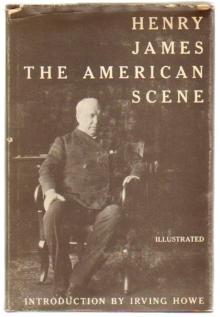 The American
The American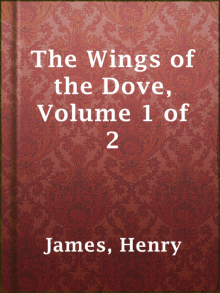 The Wings of the Dove, Volume 1 of 2
The Wings of the Dove, Volume 1 of 2 Frost at Midnight
Frost at Midnight Morning Frost
Morning Frost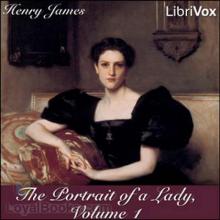 The Portrait of a Lady — Volume 1
The Portrait of a Lady — Volume 1 Fatal Frost
Fatal Frost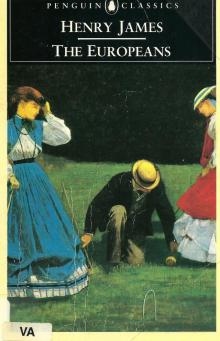 The Europeans
The Europeans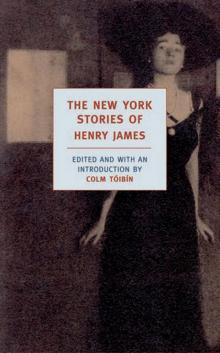 The New York Stories of Henry James
The New York Stories of Henry James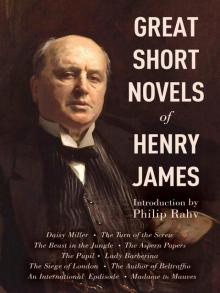 Great Short Novels of Henry James
Great Short Novels of Henry James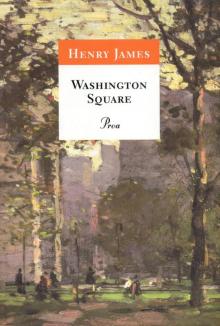 Washington Square
Washington Square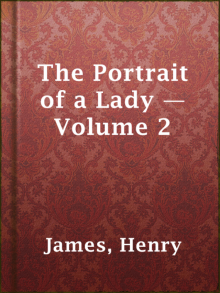 The Portrait of a Lady — Volume 2
The Portrait of a Lady — Volume 2 The Ambassadors
The Ambassadors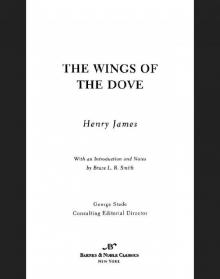 The Wings of the Dove
The Wings of the Dove The Princess Casamassima (Classics)
The Princess Casamassima (Classics)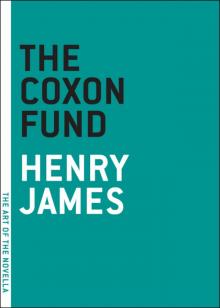 The Coxon Fund
The Coxon Fund First Frost
First Frost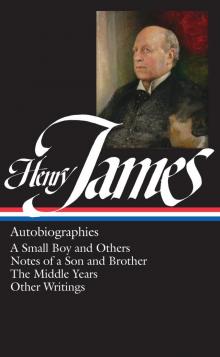 Henry James
Henry James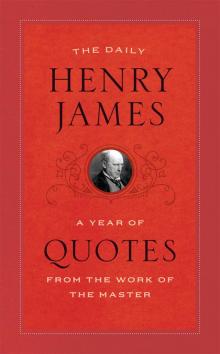 The Daily Henry James
The Daily Henry James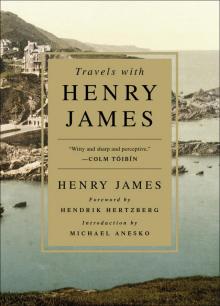 Travels With Henry James
Travels With Henry James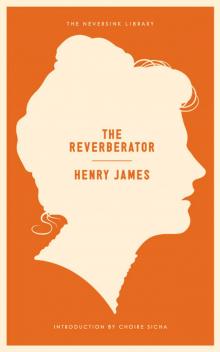 The Reverberator: A Novel
The Reverberator: A Novel What Maisie Knew (Henry James Collection)
What Maisie Knew (Henry James Collection)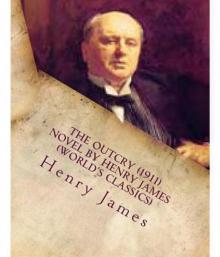 The Outcry
The Outcry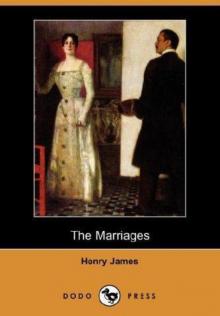 The Marriages
The Marriages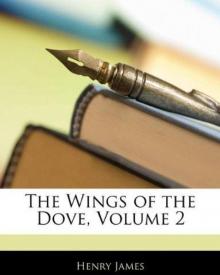 The Wings of the Dove, Volume 2
The Wings of the Dove, Volume 2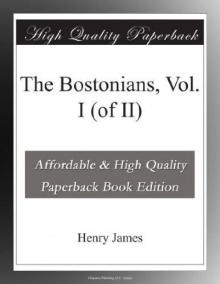 The Bostonians, Vol. I
The Bostonians, Vol. I The Outcry: -1911
The Outcry: -1911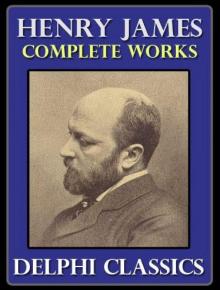 The Complete Works of Henry James
The Complete Works of Henry James Letters from the Palazzo Barbaro
Letters from the Palazzo Barbaro The Pupil
The Pupil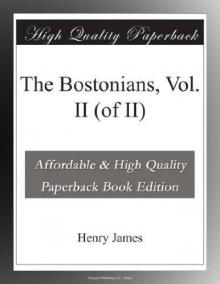 The Bostonians, Vol. II
The Bostonians, Vol. II Pandora
Pandora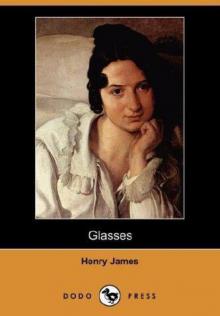 Glasses
Glasses The Princess Casamassima
The Princess Casamassima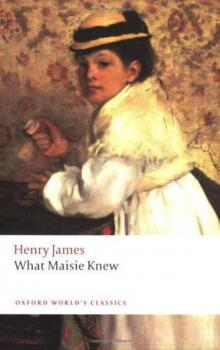 What Maisie Knew
What Maisie Knew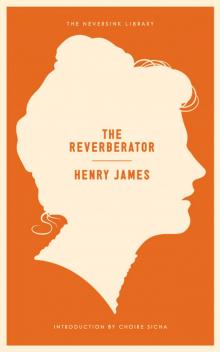 The Reverberator
The Reverberator The Golden Bowl - Complete
The Golden Bowl - Complete Confidence
Confidence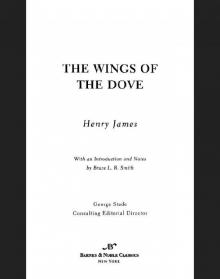 Wings of the Dove (Barnes & Noble Classics Series)
Wings of the Dove (Barnes & Noble Classics Series) The Spoils of Poynton
The Spoils of Poynton